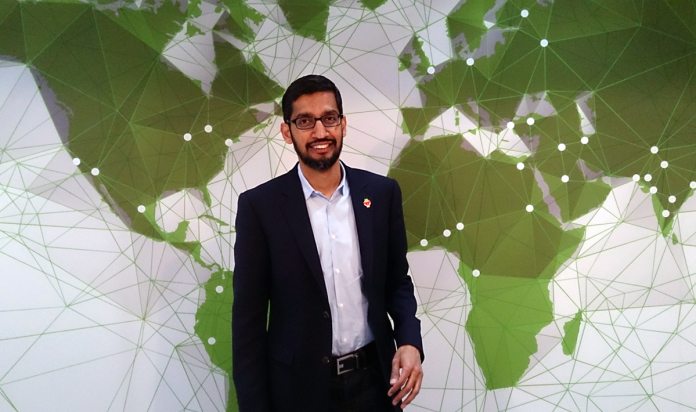Google Bard, the experimental AI chatbot that can converse with users on various topics, has been widely criticized for its lackluster performance and lack of innovation compared to its rivals, such as OpenAI's ChatGPT. In a rare and candid interview with the New York Times Hard Fork podcast, Google CEO Sundar Pichai admitted that Bard was not up to par with the company's standards and expectations, but also defended its potential and value.
“Bard is a very early prototype that we released to get feedback from users and developers. It's not meant to be a final product or a showcase of our best AI capabilities”, Pichai said. “We clearly have more capable models that we are working on, and we will be upgrading Bard soon”.
Google Wants Bard to Be “Safe”
Pichai also addressed the ethical and social implications of developing and deploying AI chatbots, especially in the wake of ChatGPT‘s controversial launch, which sparked a global debate over the risks and benefits of conversational AI. Pichai said that Google was committed to ensuring its AI products were safe, responsible, and aligned with human values.
“We have a very rigorous process for testing and reviewing our AI models before we release them to the public. We also have a set of AI principles that guide our research and development, and we adhere to them strictly”, Pichai said. “We are aware of the challenges and opportunities that AI chatbots present, and we are constantly engaging with experts, stakeholders, and regulators to ensure that we are doing the right thing for our users and society”.
Pichai also shared his vision for the future of AI chatbots, saying that he believed they could be a powerful tool for enhancing human communication, creativity, and productivity. He said that Google aimed to create AI chatbots that could understand natural language, generate relevant and coherent responses, and adapt to different contexts and domains.
“We want to create AI chatbots that can help people with their everyday tasks, such as booking appointments, ordering food, or getting information. We also want to create AI chatbots that can entertain people, such as telling jokes, stories or trivia. And we also want to create AI chatbots that can inspire people, such as giving advice, feedback or suggestions”, Pichai said. “We believe that AI chatbots can augment human intelligence and creativity, not replace it”.
Criticism from Content Creators
Google´s recently launched Bard-Chatbot has raised some controversy among content creators, who claim that the chatbot does not properly cite or link to the sources of its information.
Bard is now available in limited preview for users in the United States. It is a natural language processor (NLP) generative AI similar to ChatGPT. However, ChatGPT is more mature and has already been upgraded several times, currently running on the GPT-4 AI model from OpenAI.
Microsoft has leveraged the ChatGPT/GPT-4 technology into its services, notably Bing Chat, Bing Image Creator, Microsoft 365 Copilot, and Azure OpenAI Service. Google and Bard are seen to be playing catch up to OpenAI and Microsoft. Google was surprised by Bing Chat's launch and rushed to announce Bard. That decision did not sit well with employees, and the situation worsened when Bard mostly failed during its introduction demo.
Tip of the day: File History is a Windows back up feature that saves each version of files in the Documents, Pictures, Videos, Desktop, and Offline OneDrive folders. Though its name implies a primary focus on version control, you can actually use it as a fully-fledged backup tool for your important documents.






